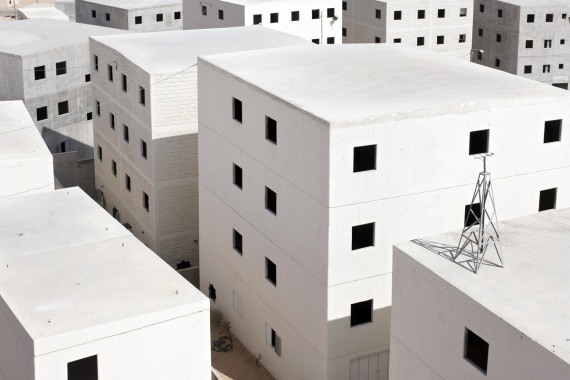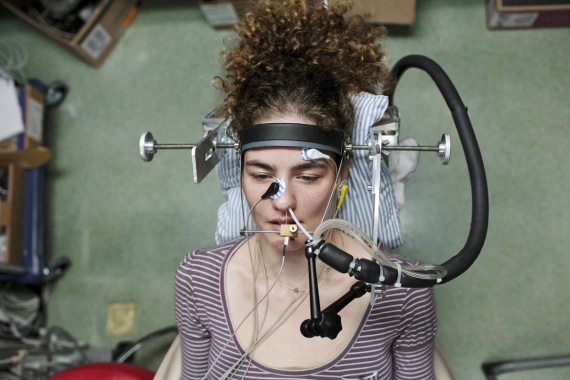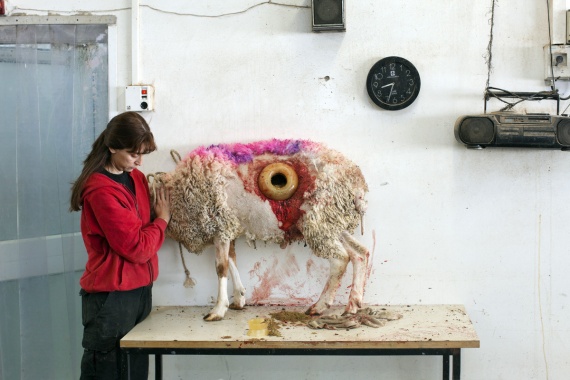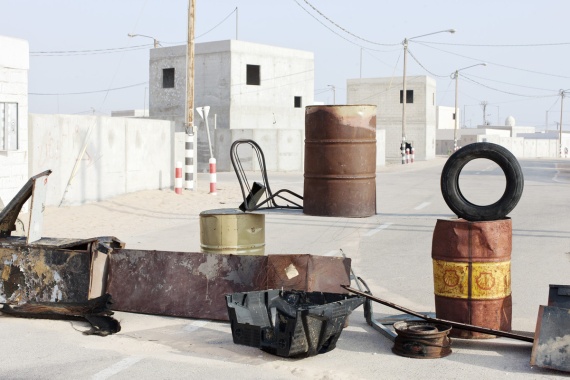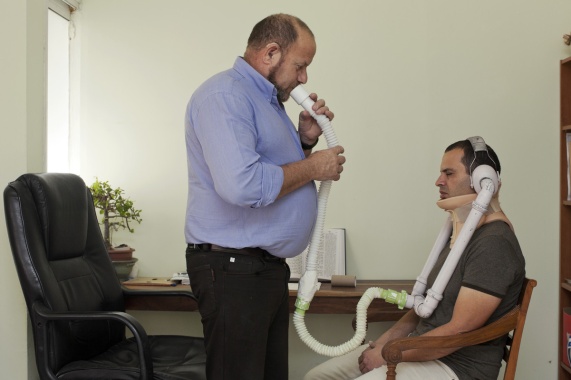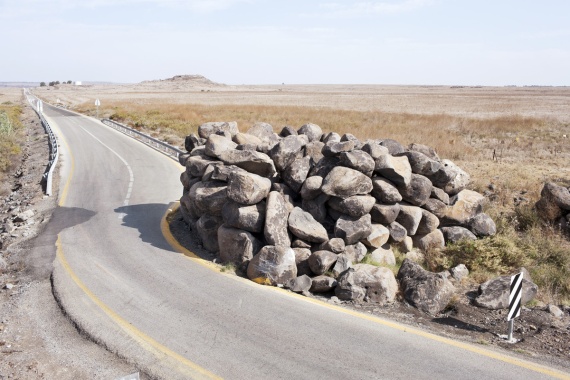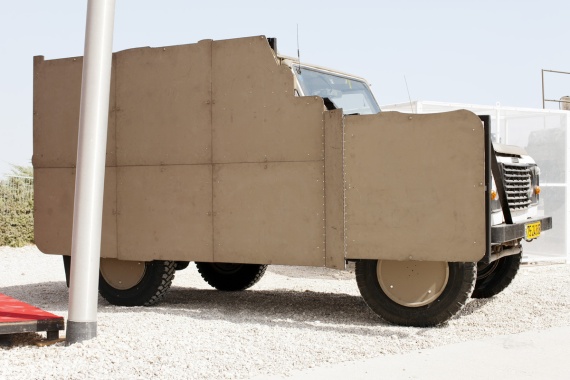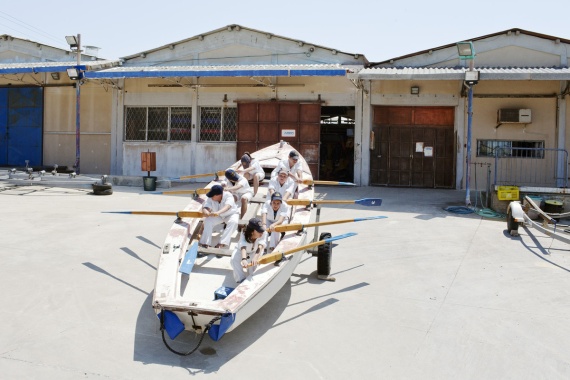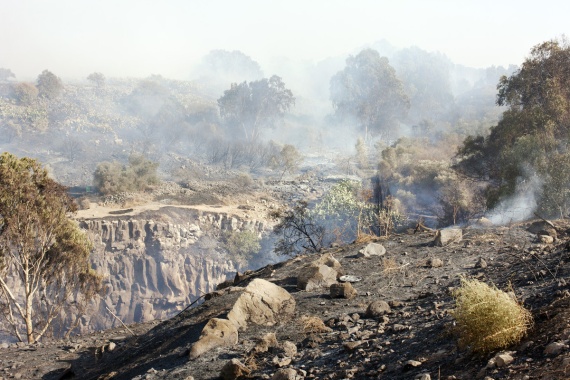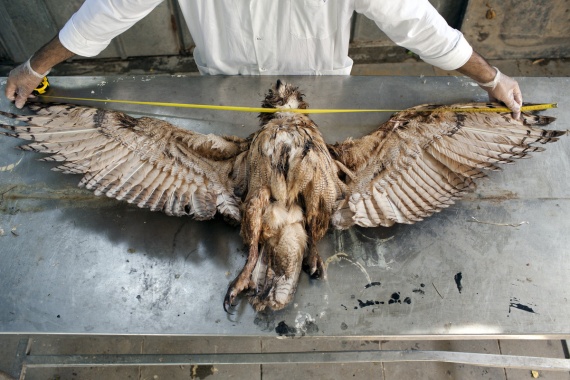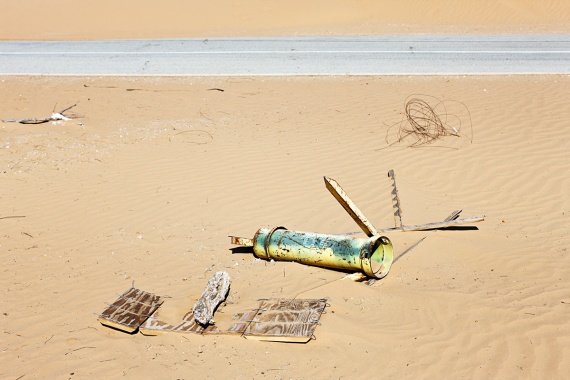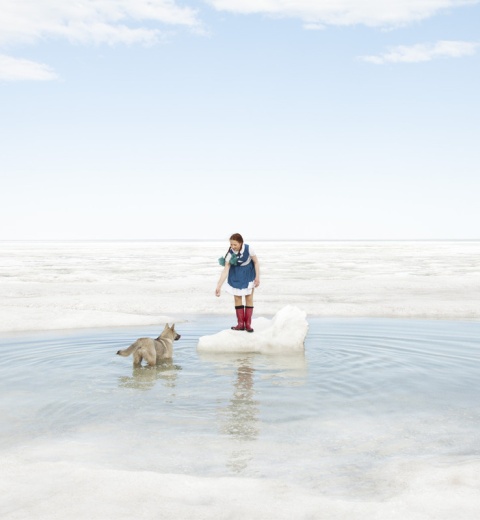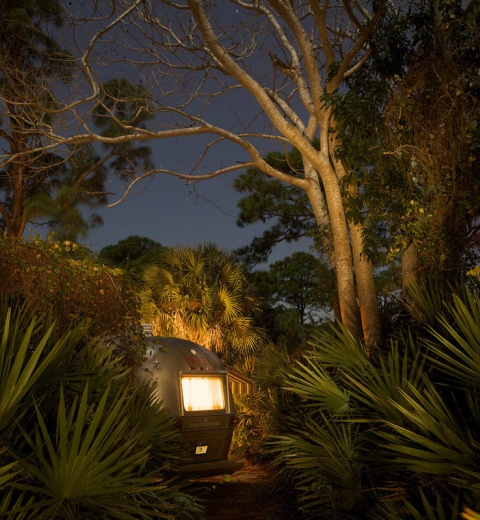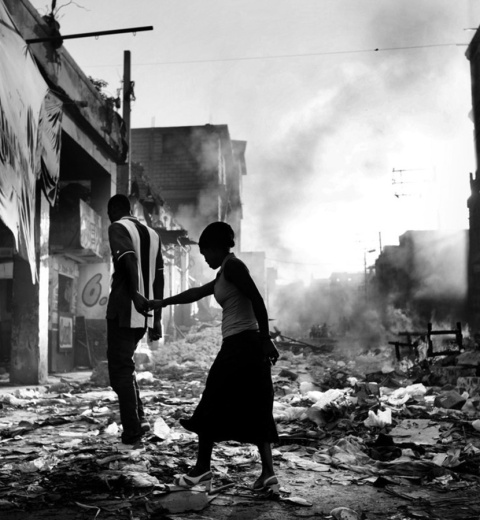Winner 2014: Martin Kollar
For his project, the Slovak photographer travelled regularly to Israel between 2009 and 2011. There he tried to capture the special mood and, above all, tense atmosphere of the country. Reminiscent of surreal film stills with deep symbolism, his “Field Trip” series still manages to reflect reality. The work earned Kollar the Leica Oskar Barnack Award in 2014.
Formal city blocks, checkpoints, medical examinations: the images in the series appear as single frames, are enigmatic and sometimes disturbing. Neither place nor context is recognizable in them, and no captions help the viewer. “I wanted my pictures to convey the idea that you never know where you are. Somehow you’re just guessing all the time – and I wanted to share that feeling with the viewer,” the photographer says, explaining his approach. “When I take pictures I try to load them with room for interpretation. I try to imbue them with as many meanings as possible, because there are many ways of looking at things.”
“Of course, there are many stories behind the pictures, and maybe they are even more interesting than the pictures themselves. But I always avoid explanations and I don’t add captions.”
The “Field Trip” images were shot within the context of the project entitled “This Place”, a dossier about Israel and the West Bank on which Kollar worked together with eleven other photographers. The aim of the project is to portray the diversity of the country and, in turn, to illustrate the complexity of one of the world’s most disputed regions. “I tried to take a look into the future. I didn’t want to work with the consequences of the past. The best thing that happened to me was that I had no agenda. That gave me freedom. This is also the explanation for the title: ‘Field Trip’. Part of the time, my trip was like a guided tour.”
The time in Israel awakened in Kollar memories of his own past: “I experienced intense flashback memories from my childhood, quite unexpectedly, memories of growing up behind the Iron Curtain during the ‘normalisation’ of communist Czechoslovakia. Our partition wall prevented us from crossing over, protected us from outside influences, and also from ourselves. The familiarity of a strictly delineated territory started to connect and overlap in my mind. Tension and a sense of physical and psychological danger hung in the air – very human emotions that cannot be ignored,” Kollar said. “After several brief police detentions in Israel, I began to realize that I could not reject the idea that I was under surveillance. Governments explain away these acts as ‘security measures’, but they were difficult for me to accept 20 years after the end of the communist regime. Somehow I found myself back in my psychic past, assessing situations with a mild sense of paranoia.” Precisely these sensations are reflected in “Field Trip”. With his photographs, Kollar provides a transparent illustration of the current situation in Israel, which he simply observed.
“None of the images were staged. All the pictures are based on observation. I came across those places and situations, and I wanted to record how I found things.”
The scenes he captured are banal, absurd and comical in equal measure – and sometimes tragic. Kollar documents a strange and uneasy normality and thus reveals the trauma he felt in Israel.
(Text updated in 2020)
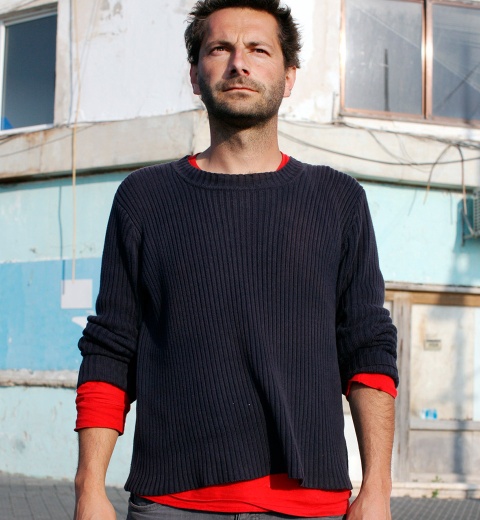
Martin Kollar
Martin Kollar was born in 1971 in Žilina, Slovakia. He studied at the Academy of Performing Arts in Bratislava. As a photographer, he works mainly on long-term projects and is also active as a documentary filmmaker. He published “Field Trip” as a book in 2013. The photographer lives in Bratislava.
